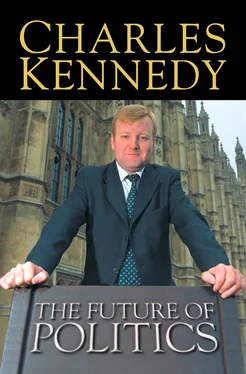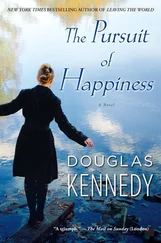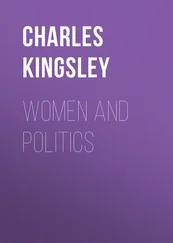With a bad taste in our mouths, our votes were cast with the government and secured them a tight majority on the night. There was great bitterness at the outcome, particularly from the Labour camp. Some Labour MPs behaved shamefully on the floor of the House, delivering highly personalized abuse in our direction, while one, a long-standing, normally friendly acquaintance, refused even to acknowledge me as we passed each other in the Central Lobby. This was jaundiced politics at its worst.
So it was, under these distinctly inauspicious circumstances, that the tortuous process of activating the Maastricht Treaty began. It was an experience that taught me some hard lessons about politics in general, and Westminster-style politics in particular. Because the government had a majority of only twenty, and could not rely on its backbench rebels – some of whom seemed to make a career out of dissenting – they depended on our support to secure majorities in key divisions. So we were key players, and at the time, particularly at 3 in the morning, that was far from easy. As with most hard times, the benefits have only become visible in retrospect. The Liberal Democrats entered, and ultimately emerged from, this sequence of events with their integrity intact and, I believe, their reputation enhanced. This was due, in no small way, to the political acumen of our leader, Paddy Ashdown.
Paddy got a central judgement absolutely correct from the outset: we would give our support on key votes based on the issue at stake – and not in return for favours in other areas. But we will never forget the widespread apprehension and distaste with which we found ourselves presented as propping up a deeply unpopular government on a near-nightly basis, for months on end. We gained from that experience, and the fact that the party remained unified was down to strong leadership from the top. As a result, the image of the party gained coherence and credibility. A useful by-product was that it put us in the news, and kept us there.
There were considerable behind-the-scenes dealings with the Tory government throughout this period. Archy Kirkwood, our Chief Whip, Russell Johnston and myself were in constant touch with Richard Ryder, then Conservative Chief Whip, about likely voting intentions. On particularly key issues, Paddy Ashdown and Douglas Hurd became involved, but procedural glitches meant that nonetheless the bulk of the Maastricht business ended up being debated on the floor of the House, rather than dealt with swiftly in the Committee Rooms, which meant very late nights and frayed tempers.
What disappointed me then, and continues to do so to this day, was the damage that the Maastricht affair did to the popular conception of European unity, and the wider public image of politics. At first, the risk was that the public would respond to the scaremongering, and view Maastricht as some scourge from abroad that threatened the Union Jack and could potentially topple the government. The letters in my postbag demonstrated the extent to which people understood the debate in precisely those terms.
Then, as the debate dragged on – and drag it did, from May 1992 to July 1993 – people stopped viewing Maastricht as a demon and simply lost interest in the many good things that it offered the nation. It was a classic example of the way adversarial politics and intra-party chicanery serve to increase public uninterest in the political process.
This increased – albeit limited – exposure to the workings of a government proved very instructive for me. It certainly confirmed in my opinion the importance of cross-party co-operation, even though, self-evidently, after such a prolonged period of untrammelled power, the Conservatives were unprepared for such a close relationship. I think they found having to deal with the Liberal Democrats a vaguely demeaning experience. We, on the other hand, learned to take an entirely pragmatic approach. If it was something we wanted, like Maastricht, then we could and would co-operate to get it. This was a vital lesson for us.
But while Liberal Democrats learnt lessons, democracy suffered. The Conservative attitude at that time was rather akin to the Labour attitude over the Welsh Assembly in the early months of 2000, when Labour in London was determined to keep Alun Michael in charge. Co-operation sometimes seems to be a dirty word in British politics, which often resembles a game of rugby: opposing teams fighting to be the single victor. This is apparent in the half-hearted response I have received each time I have called upon Tony Blair and William Hague to join me in establishing a tripartite approach to drugs and pensions. Until and unless the Conservative Party comes to terms with a more pluralistic conduct of politics, it will wait a long time before being readmitted to the mainstream. Until Labour does so less half-heartedly, it will miss opportunities. Unless British politics can accommodate itself to inter-party co-operation, the public will continue to view issues in the way they came to view Maastricht.
I have gained something of a reputation for myself over the years as a radio broadcaster, perhaps most noticeably in my Today programme broadcasts with Austin Mitchell, the Labour MP and the Conservative, Julian Critchley. The ‘Mitch, Critch and Titch’ trio may have been popular with the listeners, but I found that, even within my own party, it attracted some hostility, largely because people disapproved of the idea that MPs of different leanings could get on and have a laugh, even allowing their own parties to be mocked by the others. But have a laugh we do; whenever I am in Yorkshire or Shropshire, I visit Austin and Julian, and think nothing of it. Many people seem to feel that any suggestion of amity trivializes politics, but I feel quite the opposite, preferring to recount the words of Winston Churchill, who upon returning to office in 1951 said: ‘Now perhaps there may be a lull in our party strife which will enable us to understand more what is good in our opponents.’ All the while politics is conducted in hushed, reverential tones, all the while it takes itself so seriously, and perpetuates intense and entrenched rivalry, then the nation will find it trivial.
The tribal model of politics does not even reflect the way people vote. In the eighties, my party had an unchallenged record for coming second in elections across the board: local, national and European. We did so because there was always a bloc of voters who would support the Labour or Conservative candidate regardless of the issues under discussion, but breakdowns of modern voting patterns show that people vote for a range of candidates and parties at different electoral levels. The old sectarian loyalties are breaking down and being replaced by a concern for issues. That is one reason why Ken Livingstone drew such wide and varied support when he stood independently of his party in the elections for London Mayor. A 1999 survey found that nearly two thirds of people polled had ‘not very much’ or ‘no interest at all’ in local politics and over one third felt the same about politics in general. Only 3 per cent of the country were members of a political party – lower than the figure for membership of the National Trust or the RSPB!
The voting public may be more discerning – and I welcome that – but it is becoming an increasingly rare breed. Disenchantment with politics is a national characteristic, but it affects certain groups more severely than others. It is particularly a problem among young people. A 1998 MORI survey of eighteen-year-olds revealed that four in ten young people are not registered to vote – five times as many as in the general population. The reported turnout of eighteen to twenty-four-year-olds in the 1997 general election was some 13 per cent lower than that for the electorate as a whole. It was also lower than in the 1972 election, so the trend is worsening. According to Vernon Bogdanor, Professor of Government at Oxford University, only 12 per cent of eighteen to twenty-four-year-olds say that they will consistently vote in local elections, and 52 per cent say they will never do so. 3 Конец ознакомительного фрагмента. Текст предоставлен ООО «ЛитРес». Прочитайте эту книгу целиком, купив полную легальную версию на ЛитРес. Безопасно оплатить книгу можно банковской картой Visa, MasterCard, Maestro, со счета мобильного телефона, с платежного терминала, в салоне МТС или Связной, через PayPal, WebMoney, Яндекс.Деньги, QIWI Кошелек, бонусными картами или другим удобным Вам способом.
Читать дальше












